
Copyright © 2024 · OurPublicRecords.org · All Rights Reserved

Free Massachusetts Unclaimed Money Lookup
We receive referral fees from partners (advertising disclosure)
The information we provide you is free of charge and a result of extensive research by our home warranty experts. We use affiliate links on our site that provide us with referral commissions. While this fact may not influence the information we provide, it may affect the positioning of this information.
The information we provide you is free of charge and a result of extensive research by our home warranty experts. We use affiliate links on our site that provide us with referral commissions. While this fact may not influence the information we provide, it may affect the positioning of this information.

With our guide to unclaimed money in Massachusetts, you’ll have no problem finding your money and filing to get your property.
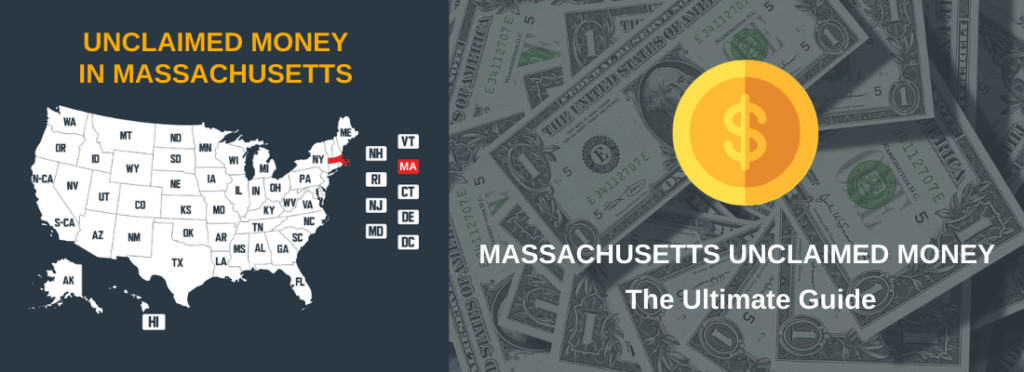

Massachusetts is one of the oldest states in the country and was part of the 13 original colonies. Also known as the Bay State, it works with organizations to help people living inside and outside the state get the assets that belong to them. Massachusetts refers to the organization as the holder who oversees assets that another person or organization owns. You’ll also hear the term owner, which refers to the person who is the legal owner of the asset. Once the owner passes away, their heirs become the rightful owner.

Many people think that it’s not worth the time to search for money in the Massachusetts database. While we can’t guarantee that you might come across unclaimed property in your name that is worth thousands of dollars, you never know what you might find. Even if you only find a few accounts for $20 or less, it takes just a few minutes to claim the money and get a check from the state. Our ultimate guide to Massachusetts unclaimed money ensures that you know exactly what to do to get unclaimed assets.
Massachusetts state law defines unclaimed property as any type of asset that the owner does not claim or use. Holders can usually keep the asset for three years without any contact from the owner before informing the state. The Massachusetts Unclaimed Property Website works with the Massachusetts State Treasurer to give the general public more information about unclaimed property and help them file claims as needed.
All types of insurance policies go into the database when the insurer cannot find the person who owns the policy or will benefit from it. When you buy a policy, you must name at least one beneficiary who is the person who will get the proceeds from the policy when you pass away. This is often a spouse or child. Most use the proceeds to pay for the deceased’s funeral costs and the expenses of the estate. You can also look for auto insurance checks in the Massachusetts database.
Those checks often go to people who were the victims of accidents caused by other drivers.
Massachusetts lists many types of uncashed checks, too. Have you ever filled out one of those rebate claims after buying a product from a local store? The odds are good that you forgot about the claim and didn’t watch the mailbox carefully, which can result in you losing the check. Other checks come from utility suppliers who charge deposits when you set up new accounts. Those providers may contact the treasurer about checks that they sent for account balances that came back. This often happens when you move and do not give the utility your new address.
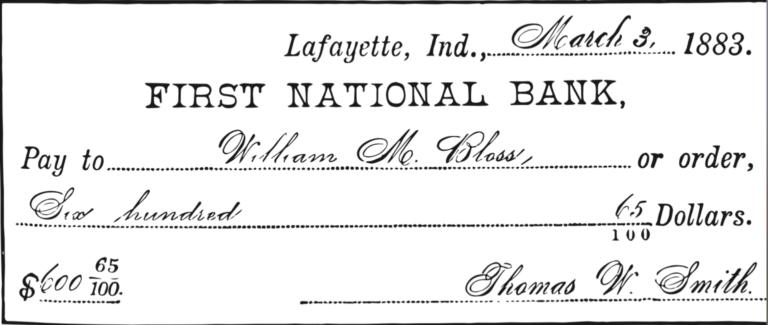
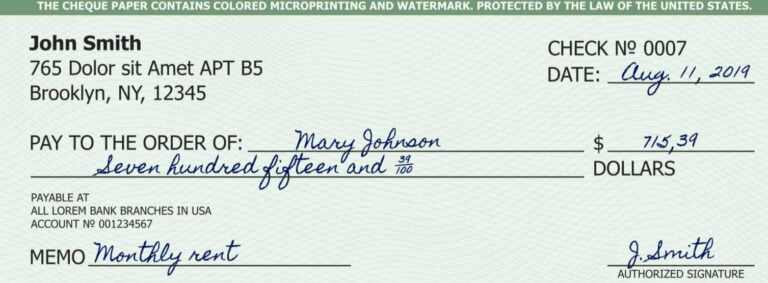
You can look on the Massachusetts Unclaimed Property Website for lost wages, too. Though you expect your old employers to pay you all the money that you earned when you leave for a new job, this doesn’t always happen. They may find that you had several paid vacation days that you never took or that you didn’t pick up your last expense check. There are also settlements in which employers settle with past employees for different reasons. You may also find stocks and bonds in the Massachusetts database as well as safe deposit boxes and money made from the sale of those boxes.
Do you want to look for unclaimed property in Massachusetts but have no idea where to start? The Massachusetts Official Unclaimed Property Website is where you should start.
Step 1: Visit the Official Unclaimed Property Website created by the Massachusetts State Treasurer. Click on the green “Search for Unclaimed Property” link that appears at the top of the page.

Step 2: Type your last name in the name box. Massachusetts will accept the name of a business, too. If you want to narrow your search results, you can use your first name or information about the claim such as the property ID number or city where you lived.
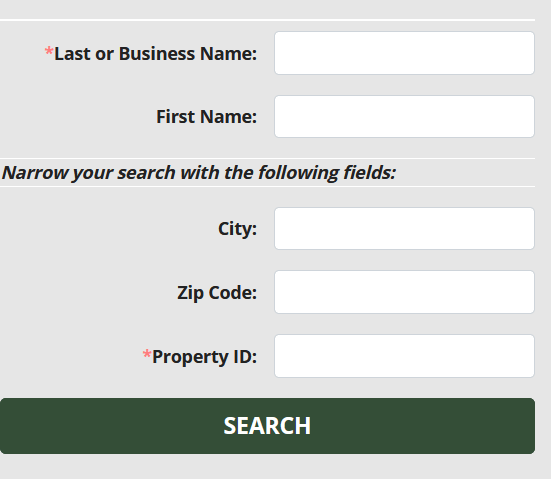
Step 3: Take a look at the results found for your name, which often take a few seconds to load. Before filing a claim, make sure that you’re the legal owner and that both your address and name match those found on the claim. The “Share” button lets you email a claim to a loved one and requires that you have their email address and list your name. Massachusetts will list the type of property attached to each claim and the name of the holder.
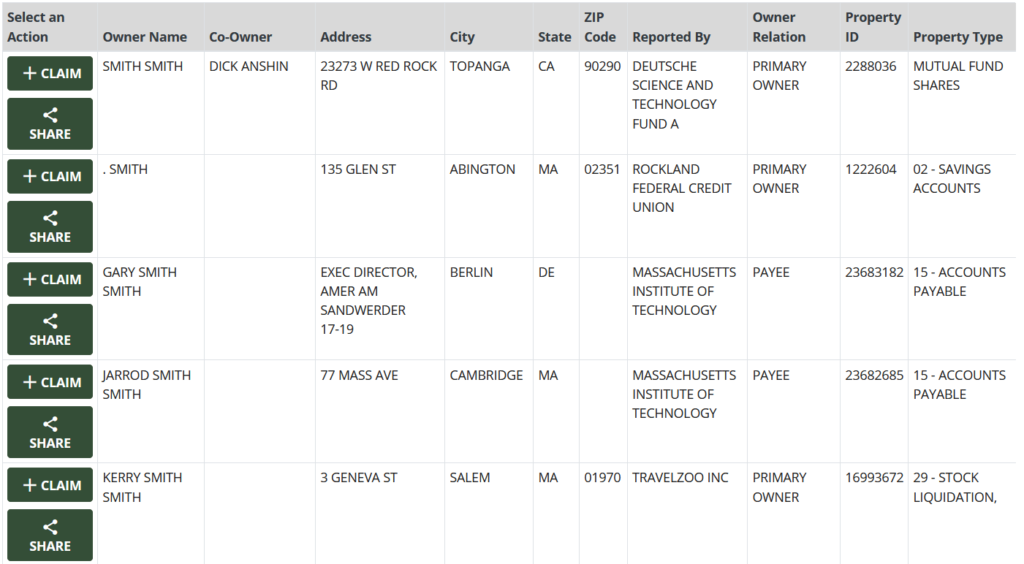
Step 4: Look for the green “Claim” button on the far left side of the search results when you find a claim. You need to click on it and then click on the yellow “File Your Claim” button at the bottom of the page. If you want to save time, look through all the results to find the claims that you can file. You can add multiple claims before clicking on the file button.

Step 5: Confirm the information found on the next page to ensure that you have the right to claim that property. You will also need to use the menu to show that you are the listed owner or that you want to file the claim for another person.

Massachusetts knows that you may want to file for a loved one or another reason, which is why the state database accepts several types of claimant relationships. The first is an estate representative, which is someone appointed by the court to handle the needs of a deceased’s estate. If the estate did not need probate and you can prove that you are the deceased’s heir, you can file as their heir. The trustee option is only available for the legal trustee of a trust. You can also file if you have Power of Attorney over an individual or you are the owner of a business and its assets.
Step 1: Enter your current contact information in the form that appears once you complete all the steps that we outlined. Massachusetts requires your full address and home or mobile phone number as well as your email address and date of birth. If you do not want the treasurer to share your information with others, you can opt out of this option.
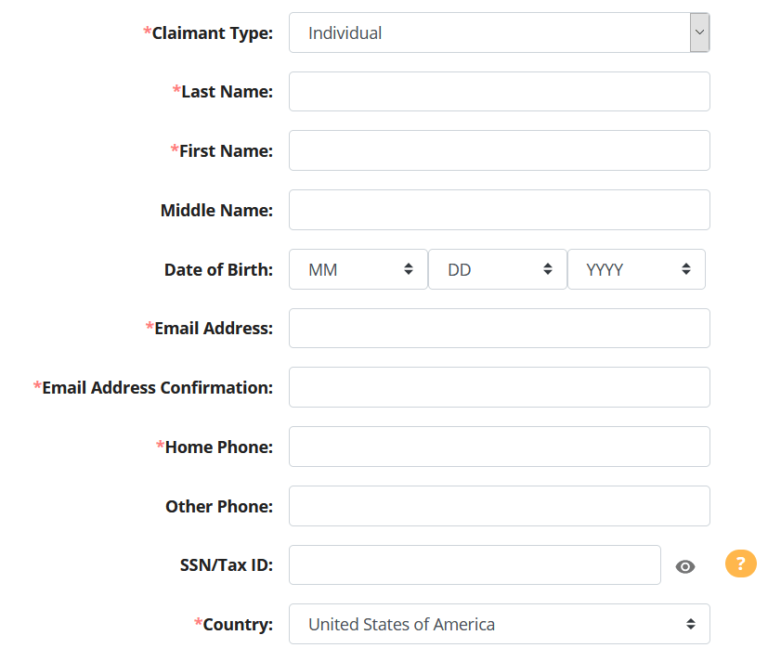
Step 2: Preview your Massachusetts claim and verify that all the listed information is correct. You can then click on the yellow “Submit” button to send in your claim.

Step 3: Visit the upload claim document website to attach all the required documents to your claim. You usually need proof of your social security number along with a copy of your most recent photo ID. The Massachusetts website also asks for your email address and claim number to make sure that your information goes to the right claim.

Before you visit the document upload page, check your email for a copy of your claim form. Massachusetts will include several sections under your information and the property claim. Look for Section C, which details everything that you need to file. If you do not have a copy of your social security card handy, you can use your tax returns from last year or any other official documents that show this number. You may need to present court documents or evidence of your relationship with the claimant when filing on behalf of another person.
Massachusetts allows you to check on the status of all of your claims after you file through the online status checker. This helps you stay on top of your claims and make sure that the treasurer got all of your necessary information. You can only check one claim at a time and enter the ID number in the box to view its status. Keep in mind that the state can process some claims faster than others, which means that you may get a check for one claim while the state is still looking over the others.
If you live outside of Massachusetts, make sure that you look for the databases used by those states. You may find that one or more of those states uses the Missing Money database, which allows you to search for unclaimed money in different parts of the United States and Canada. This site makes it easy for users to upload all of their information and file claims through the web.
You may want to check with the National Credit Union Administration if you had money in an account at a credit union that closed without giving you access to your funds. The NCUA will tell you what happened to the assets of the credit union and what you can do to get your money. Through the Federal Deposit Insurance Corporation, you can find similar information about banks that are no longer open. Many people find that the banks sent their money to other institutions that later contacted the treasurer about the funds.
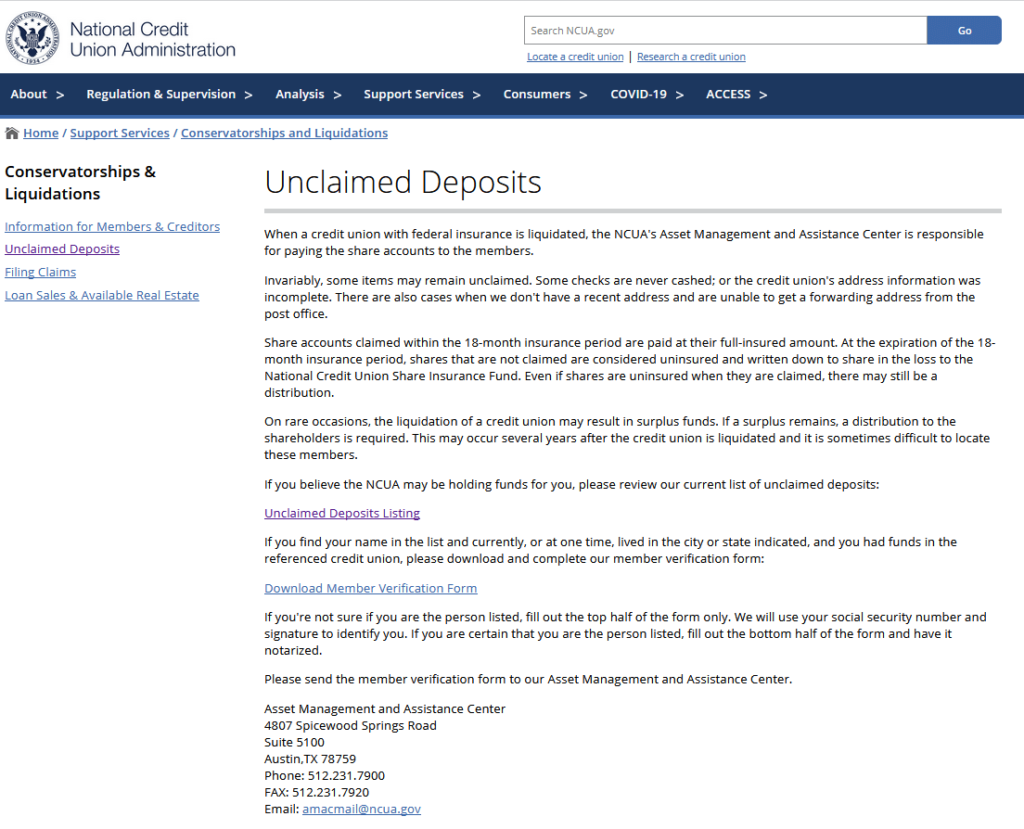
Some of the other sites that we found helpful include:
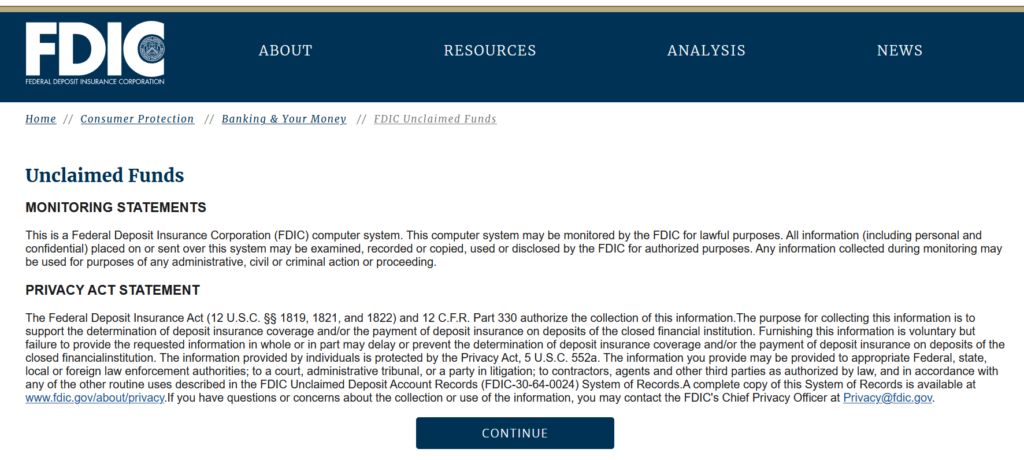
The Massachusetts Official Unclaimed Property Website offers a PDF file that you can download or view online to take a look at all the state’s unclaimed property laws. You can see how long holders can hold any type of property and what they need to do to find the owner. The laws also cover the auctions that the state has for some types of property and what you can do to file a claim as the heir to a deceased’s individual.
Massachusetts usually holds an annual auction to sell any physical property turned over to the treasurer. The state receives the property through the holders of safe deposit boxes who cannot locate the owners and estates of people who passed away without any heirs. All the items will appear in a large display at the State House and then go on a tour of select spots across the state. You can also go online and view some items heading to the auction block. Massachusetts usually holds the auction on eBay around the end of the fall every year.
If you see anything listed in the auction that you think belongs to you or a loved one, contact the state treasurer as soon as possible. The steps that you need to take to get those items back before the auction depend on how the state ended up with them. For items sold due to no known heirs, you need to present proof of your relationship with the deceased such as a birth certificate that shows the owner was your parent. If the items were part of a safe deposit box, you may have the chance to pay the rental and late fees that the holder charged to get the contents back before the auction.
Massachusetts has more than $2 billion in assets listed in the database on the Official Unclaimed Property Website. Those funds include money held by the state for the heirs of deceased residents along with cash turned over by insurers and banks. Once you check the Massachusetts database, make sure that you check the databases in all the other states where you once lived. You’ll also want to search the other sites and resources that we found.

The Massachusetts Unpaid Check Fund is a state department that keeps track of unpaid checks issued within the Bay State. This often includes payroll checks issued to current and past employees as well as checks sent to vendors who worked with the state government. Massachusetts will hold most of those funds for one year and make attempts to find the people listed on them. If the owner does not come forward within that year, the money will go to the treasurer for inclusion in the online database.
To claim an unpaid check, you need to contact the treasurer over the phone and give your full name along with your home address. Massachusetts does not let you file a claim for a check online. Once you contact the treasurer, you’ll receive a claim form through the mail that you can send back after filling it out. If you do not file a claim in time, the state will move the money to the online database, which allows you to file a claim through the system.
Unlike other states that may use assets to support different departments if the owner never comes forward, Massachusetts will always hold the assets turned over to the treasurer. The state will keep the assets safe until either the owner or one of their heirs files a claim. One exception to this rule relates to stocks and bonds. The treasurer will only hold those items for three years before liquidating them. You then get the proceeds from the sale but not the stocks or bonds. If you file a claim for any type of security, keep in mind that the process can take longer. Massachusetts will use a transfer agent to move the funds from the treasurer back to your name, which can take more than a month.
The Bay State does several things to find the rightful owners of assets sent to the treasurer. You may see ads in the newspaper or on television that encourage locals to check the online database. The treasurer releases a new list every year that features the names and assets added to the system in the last year. With safe deposit boxes, employees of the department will go through the paperwork and other items in the box to find the owner or their heirs. They may use the tax system to locate those who moved since renting their boxes. Massachusetts will also send a notice to the owner at the last known address if the property has a value of $100 or more. You may get one of these notices, even if your address changed since you lost the property as the state can find your current address through the tax department.
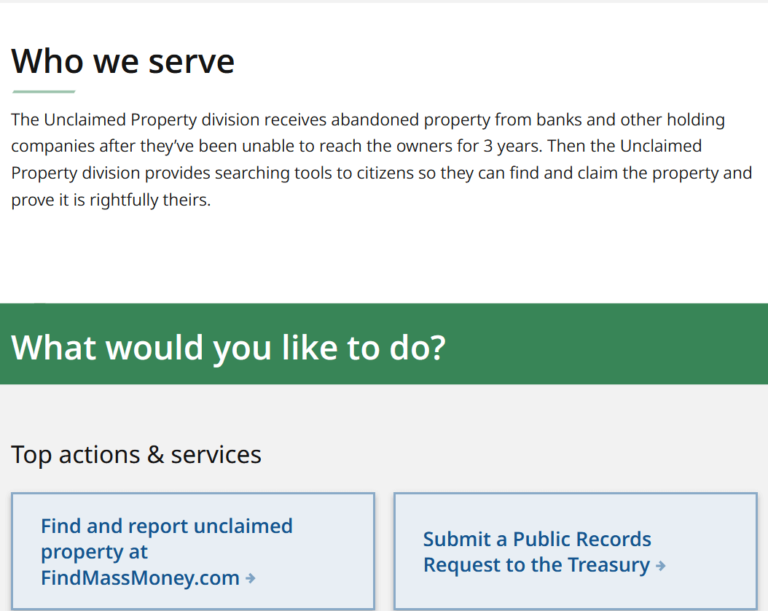
An heir finder is essentially someone who will find unclaimed property and locate the owner. They often work with heirs to find property that belonged to their parents that became lost in the system. Massachusetts requires that all heirs register with the state and limits the total amount that they can charge to no more than 10% of the value of the property. If the system has a $100 check in your name, the finder cannot charge more than $10 for their service. The Massachusetts Treasurer recommends that you contact the department if you need help filing a claim or finding the right forms. In many cases, the office offers the same help that finders do but won’t charge you.
Learning how to protect your valuables will reduce the risk of holders sending your assets to the Massachusetts treasurer. We recommend using an app that keeps track of all of your accounts along with your log-in information. You should spend check any of the assets that you own at least once every year to make sure that they are in good standing. Don’t forget to update your contact information when anything changes, even small things such as getting a new email address.
Thanks to the Official Unclaimed Property Website, Massachusetts makes it easy for you to get any property or asset that belongs to you. You can search the state database when you live in any part of the state or when you move to a different part of the country. Use our ultimate guide to unclaimed money in Massachusetts to learn how to search the site and claim your assets.
Disclaimer: OurPublicRecords mission is to give people easy and affordable access to public record information, but OurPublicRecords does not provide private investigator services or consumer reports, and is not a consumer reporting agency per the Fair Credit Reporting Act. You may not use our site or service or the information provided to make decisions about employment, admission, consumer credit, insurance, tenant screening, or any other purpose that would require FCRA compliance.

Copyright © 2024 · OurPublicRecords.org · All Rights Reserved